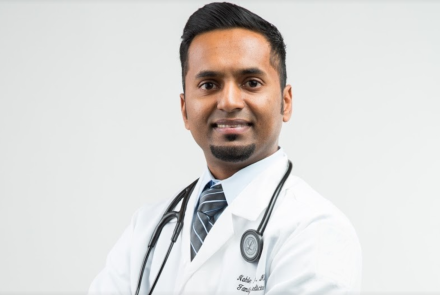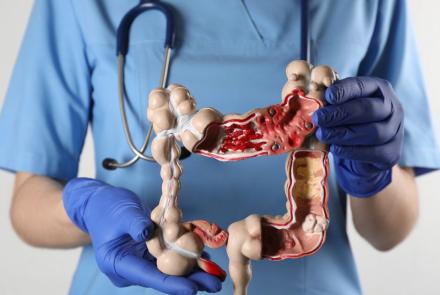Many people are able to manage an occasional headache with over-the-counter pain relievers. But if your headaches are consistent, increasing in frequency or severity, or interfering with your usual activities, talk to your doctor, advises Andrew Erian, M.D., a neurologist with Highland Medical, Rockland Neurological Associates in West Nyack, N.Y.
“There are different types of headaches, and each one is best treated with different medications,” he said. “For all types of headaches, we have treatments that can reduce their frequency and severity, and improve your quality of life.”
The most frequent types of headaches he sees in patients are migraine, cluster headaches, and tension headaches, among other types. He also sees headaches brought on by health issues such as strokes, seizures or concussions.
Migraines
Migraine headaches are characterized by recurrent attacks of moderate to severe throbbing and pulsating pain on one side of the head. Untreated attacks last from four to 72 hours. Other common symptoms are:
- Increased sensitivity to light, noise, and odors
- Nausea
- Vomiting
Routine physical activity, movement, or even coughing or sneezing can worsen the headache pain. Some patients have an aura, which is a warning sign the migraine is about to come on. The aura may include changes in vision, dizziness, a ringing in your ears, or sensitivity to light.
Treatment for migraine depends on frequency and severity. Your doctor may prescribe medication to provide immediate relief. You may also be prescribed a preventative medication to help avoid future migraines.
Treatment for a migraine already in progress can include:
- Triptan drugs, which can alleviate moderate to severe migraine pain
- Over-the-counter pain relievers like ibuprofen, aspirin or acetaminophen for less severe migraines
- Anti-nausea drugs
- Steroids
Preventative medications for migraine can include:
- Anticonvulsants
- Beta-blockers
- Calcium channel blockers
- ACE inhibitors
- Antidepressants
- Newer medications called CGRP antagonists (some injectable, others oral) including Aimovig, Ajovy, Emgality, Qulipta and Vyepti
- Botox
- Natural treatments including riboflavin and magnesium
Non-drug therapy for migraine includes acupuncture, biofeedback and relaxation training.
Tension headaches
Tension headaches are the most common type of headache. Pain is on both sides of the head, and it feels like you have a band around your head. Unlike migraine, tension headaches don’t cause nausea and they don’t make you more sensitive to light or sound.
Tension headaches often can be treated with over-the-counter pain relievers. To prevent regular tension headaches, treatments can include antidepressants called tricyclic medications, and anticonvulsant medications. “Some people use relaxation techniques, acupuncture or physical therapy to prevent tension headaches,” Dr. Erian said.
Cluster headaches
Cluster headaches occur on one side of the head. They last up to three hours. The nose and eye on the affected side of the face may get red, swollen and teary. They can cause agitation, changes in heart rate and blood pressure, and sensitivity to light, sound or smell. They can occur every other day, or up to eight times a day. Lack of sleep or too much alcohol can bring on cluster headaches.
Treatment of a cluster headache in progress may include oxygen treatment (briefly inhaling pure oxygen through a mask) or triptan drugs.
The most common preventative treatment for cluster headaches is verapamil. Other preventative treatments include steroids, lithium, Topamax or a nerve block.
When to Seek Immediate Medical Attention for a Headache
“Sometimes a headache is a warning sign that something worrisome is going on in the body,” Dr. Erian said. See a doctor for your headache right away if you have:
- Symptoms in addition to your headache that affect the rest of your body such as fevers, muscle pain and weight loss.
- Any headache associated with changes in mental functioning or personality, or weakness or loss of sensation. This could be an indication of a stroke, mass in the brain or other problems in the nervous system.
- A headache that hits suddenly and severely, without warning. This can be a sign of a stroke, especially a bleed in the brain known as a subarachnoid hemorrhage.
- New, consistent headaches and you are 50 or older. These headaches could be a sign of a more significant problem.
- A change in your headache patterns – such as if they are becoming more severe, more frequent, or associated with new symptoms like fatigue.






